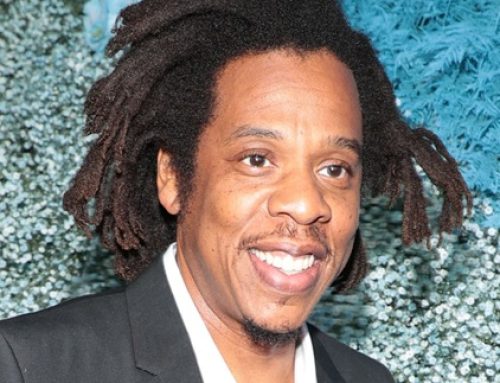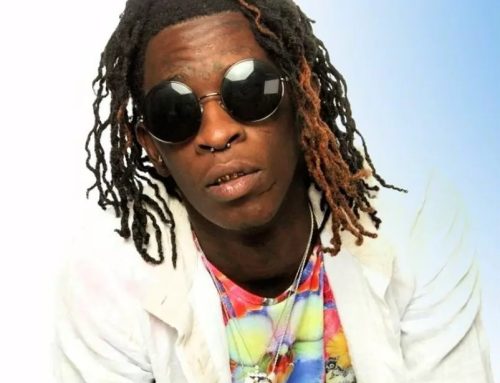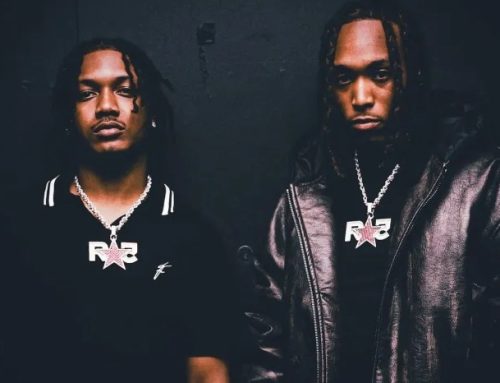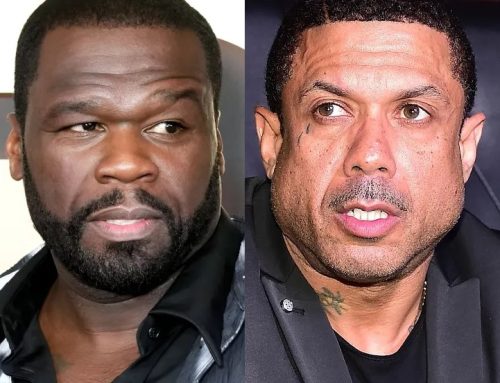The past few years have seen a major shift in pop music, with artists from Africa redefining what it means to create an international mainstream hit. But as Afrobeats becomes a commonplace fixture on global music charts and airwaves around the world, a burgeoning crop of young Nigerian creatives – popularly categorized under the subculture known as alté – are breaking away from the norm, crafting a sound and style that goes beyond the music, which is unique and hard to ignore.
A clipped form of the word “alternative,” alté is largely characterized by individualistic and experimental forms of self-expression in music, fashion and art. While the sonic and visual aesthetic draws inspiration from global influences, this subculture also embodies the nostalgia of decades-old Nigerian pop culture, from ‘80s funk to ‘90s and early ‘00s Nollywood. As the sound of alté continues to gain steam globally, it increasingly reflects the vast diversification of Nigerian music.
Cruel Santino is one such Nigerian artist making music that defies convention. In his latest album, Subaru Boys: FINAL HEAVEN, he combines elements of alternative afrobeats, grime, R&B, bedroom pop and more, to evoke the feeling of a futuristic, underwater world – which he describes as a place where wardens, known as “Subaru Boys” (an anime-style creation) – are enlisted to carry out gritty tasks on behalf of the fictional government. The 21-track album is broken up into several narrative arcs, and each song is punctuated by the sound of sea waves, explosions, sirens and synthesized voices attesting to the abilities of the Subaru Boys.
For FINAL HEAVEN, Santino has taken inspiration from several sources: anime, video gaming and experimental soundscapes. It’s a departure from the smooth appeal of his 2019 album, Mandy & The Jungle, but he’s excited to reveal another side of his established range. “I brought out every single pocket of mine that I’d been keeping away and showed them, without really caring,” he says. “That new direction led to these sounds.”
Cruel Santino spoke to Billboard about creating a new world, stepping past his comfort zone and refusing to conform to a regimented style.
You put out Mandy & The Jungle under the name Santi. How does it feel to release your biggest body of work so far, and with the new name, Cruel Santino?
It’s like a full-circle moment. I never wanted to change my name, but I had to do so [due to copyright issues]. Now, I feel like there’s a reason it happened, because Cruel Santino is the perfect combination of all the names I’ve had in the past and what they represented – from being Ozzy B the rapper to Santi the singer. It’s time for me to show all the genres I’m good at, instead of trying to conform to a certain standard.
Where I’m from, there’s some risk in making music that isn’t generally acceptable. I didn’t want to put that in my head anymore, so I decided that this time I was just going to show who I am and not conform. I’m happy that I did, because nowadays there are so many possibilities that being yourself can create.
What was your process like while working on FINAL HEAVEN, and why did you choose to release it now, after taking a break?
I worked on the album for two years, and it was a long process. Before I knew where I was trying to go with the project, the first half was titled Helena. But during the lockdown I consumed a lot of anime, video games and music, and eventually started to hear gaming music in my head. I transferred this to the songs I was making, and when I realized that I could create something crazy, I began to research different forms of music and listen to more experimental songs.
Combining this love for anime, gaming and music, I wanted to create something to take the listener to another world. Even if you’re not sure where it’s taking you, you’re like, “Okay, I’m here for the ride.”
What does the Subaru world you created represent?
Before I make songs, I build a world in my head and then create the song as a soundtrack to it. Because of everything I was consuming at the time, I decided to give the album more life, and make it feel like a multi-layered world of its own. So I made an anime, and made this album the soundtrack to the anime. I started out building characters and trying to give them life, and then I went into sounds. Each week or month, I’ll put out new things to piece the world together, and soon there will be videos and character reveals.
The diversity in this project is clear, from the choice of featured artists (Skepta, Amaarae, Koffee, Gus Dapperton) to the wide range of sounds explored. Did you intend for it to gain appeal as a cohesive body of work, or that it would be received in a way that everyone can find something they like, regardless of what their preferred genre might be?
It’s a mix of both. On the night I dropped the album, I said to people, “If you really want to enjoy Subaru for the story and for what it really is, just let it play.” Enjoy the transitions and immerse yourself in this world. But at the same time, I understand that people might skip through tracks to find something they like. I have a wide range of pockets, so I feel like there’s something for anyone who wants to dive into it.
Your music was categorized as alté years before it started to gain mainstream popularity. How do you feel about how far the movement has come?
It’s a great thing, and more importantly, people need to feel safe enough to create whatever they want without having to tone themselves down. In Nigeria, many people don’t believe they can do certain things because it doesn’t feel like it’s possible. But those who take risks find that it usually pays off.
Nigerian singers are currently doing big things – from Tems to CKay to Rema and Lojay, people have now glitched the game and are creating a level playing field for Nigerians to express themselves in whichever way they like. When you have the freedom to create without fear, you’re going to make something groundbreaking.
FINAL HEAVEN can be described as a genre-bending album. Do you find it limiting to classify your music as alté alone?
Definitely. Part of why I made this work was that sometimes I wasn’t happy with how I was being portrayed. The common narrative is just about a community of people doing things, but there’s no real, deep meaning to who we are. It’s limiting to put us all under one genre, but I feel like this will change with time, thanks to the mainstream buzz. It’s all a work in progress, being formed and solidified and it keeps getting bigger. As people continue to express themselves and show who they truly are, the whole narrative will be properly defined.






